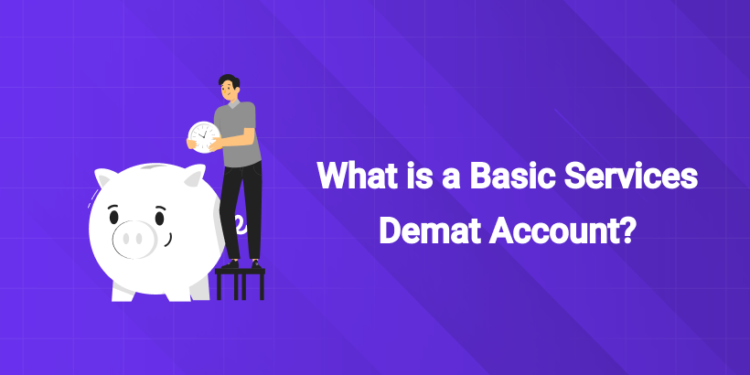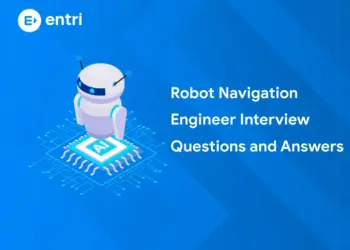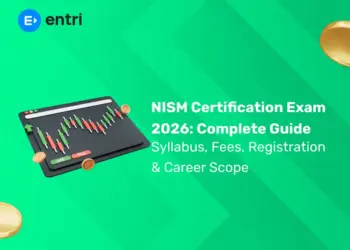Table of Contents
Introduction
If you’re a beginner in investing or have a smaller portfolio, one question you’ll likely face is: What is a Basic Services Demat Account? This blog unpacks that question in clear, simple language. You’ll learn how this type of demat account works, why it was created, who it’s for, and how it may suit your investment goals.
What is a Basic Services Demat Account?
1: What is a stock?
A Basic Services Demat Account (often abbreviated as BSDA) is a special category of dematerialised (demat) account created to serve small or new investors in the Indian securities market. It lets you hold shares, exchange-traded funds (ETFs) and other securities electronically. But with lower maintenance costs and simpler rules compared to standard demat accounts.
In essence, the Basic Services Demat Account gives you a “lighter-cost” gateway into investing: you get most of the benefits of a full demat account, but you’re not burdened with high annual charges if your portfolio size is small.
Learn Stock Marketing with a Share Trading Expert! Explore Here!
Why was the Basic Services Demat Account introduced?
The regulatory body aimed to encourage wider retail participation in equity markets. Many small investors were reluctant to open full-service demat accounts. Because the fees were relatively high and the portfolio value was modest. By introducing the Basic Services Demat Account, the regulator lowered the cost barrier. Thus, for someone starting out or holding a small number of securities, a BSDA serves as a more accessible entry point.
Key Features of a Basic Services Demat Account
Here are some important features of the Basic Services Demat Account:
- Reduced annual maintenance charges (AMC) or even zero charge up to certain holding thresholds.
- Only one such account is permitted per investor (you must be the sole or first holder) across all depositories.
- The account is for individuals (not institutional) and suitable for smaller portfolios.
- If your securities’ total value exceeds a set limit, the account may be converted into a regular demat account with standard charges.
- You still get all the core benefits of a demat account: electronic holding of securities, easier transfers, statements, etc. The difference is mainly in cost and eligibility.
Eligibility Criteria for a Basic Services Demat Account
To open or maintain a BSDA, you must satisfy certain conditions:
- You must be an individual investor and be the sole or first holder of that demat account.
- You can have only one Basic Services Demat Account across all depositories.
- The total value of securities in the BSD Account must not exceed the maximum limit as specified by the regulator at any point. For example, under recent guidelines the securities value threshold is ₹10 lakh.
- If you already hold another demat account (where you are the first holder) or open one after opening a Basic Services Demat Account, eligibility may be affected.
These criteria ensure the account is used in the spirit intended: for smaller investors, and not as an alternative for large or multiple accounts.
Stock Market Training Reviewed & Monitored by SEBI Registered RA
Trusted, concepts to help you grow with confidence. Enroll now and learn to start investing the right way.
Know moreCharges and Holding Limits under Basic Services Demat Account
One of the major attractions of the Basic Services Demat Account is the lower cost structure. But the charges and limits have evolved over time:
- In earlier guidelines, if your holdings were under, say, ₹50,000, then the AMC could be zero. If holdings were between certain slabs (e.g., ₹50,000-₹2,00,000) a small AMC (for example ₹100 per annum) might apply.
- According to updated circulars effective from 1 September 2024, the holding value for a Basic Services Demat Account can go up to ₹10 lakh, subject to the account being the only one in the investor’s name and where the person is the first/sole holder. In this case: holdings up to ₹4 lakh may incur no AMC, and holdings between ₹4 lakh and ₹10 lakh may incur a nominal AMC (e.g., ₹100/year plus GST).
- If the holding value crosses the threshold (₹10 lakh under new rules), the Basic Services Demat Account will be treated like a regular demat account. And standard charges will apply.
It is important to check the specific charges and slabs as offered by your depository participant (DP) or broker. The regulator sets ceilings, but brokers may offer better rates.
How to Open or Convert to a Basic Services Demat Account
Here is how you can get a Basic Services Demat Account:
- Choose a brokerage/depository participant offering demat services.
- Ensure you meet the eligibility criteria (sole/first holder, only one account, holding value within threshold).
- Apply for a Basic Services Demat Account via the broker’s account-opening process: submit KYC, identity/address proofs, PAN, etc.
- If you already have a regular demat account, and you wish to convert it to a Basic Services Demat Account, you may apply for conversion. Some brokers/depositories may automatically convert eligible accounts.
- Once the account is activated as a Basic Services Demat Account, track your holdings value. If it crosses the threshold during a quarter or billing cycle, the account may be re-classified as regular and higher charges may apply.
Opening this type of account is quite straightforward. The key part is making sure you remain within the stipulated limits and use only one such account.
Basic Services Demat Account Benefits & Limitations
Now let’s check the benefits of a Basic Services Demat Account.
Benefits
- Lower or zero annual maintenance charge: For smaller portfolios, cost burden is minimized.
- Simpler for new or small investors: Because of lower fees and clear eligibility, it is a good entry point.
- Encourages participation in equity markets: The regulator’s aim was to make investing accessible.
- Full demat benefits: You still get safe electronic holding of securities, ease of transfer, and statements.
A BSDA has its own disadvantages.
Limitations
- Holding value capped: If your portfolio grows beyond the threshold for the Basic Services Demat Account, you’ll incur higher charges. Or get converted to a regular account.
- Only one such account allowed: If you require multiple demat accounts for varied purposes, this may restrict you.
- Some normal demat features may have slightly limited flexibility or higher charges for additional services under BSDA-may differ broker to broker.
- Since the account is meant for smaller portfolios, if you’re an active investor with large holdings and frequent trades, a regular demat account may make more sense for you.
Learn Stock Marketing with a Share Trading Expert! Explore Here!
Key Takeaways
- A BSDA provides a cost-effective demat account option for retail investors with smaller holdings
- The account was designed to lower the barrier to entry into the securities market and encourage participation.
- Eligibility criteria include being the sole/first holder, holding only one such account, and keeping portfolio value within stipulated limits.
- Holding thresholds and charge slabs have been updated. Under current rules, you may have up to ₹10 lakh holdings and still qualify for the BSDA benefit, subject to conditions.
- It is ideal for investors who are starting out, have a modest portfolio, or wish to keep costs minimal.
- If your holdings grow beyond the allowed limit, your Basic Services Demat Account will convert into a regular demat account.
Always check with your broker or depository participant for the latest rules, charges and whether the account meets your investing style and needs.
Stock Market Training Reviewed & Monitored by SEBI Registered RA
Trusted, concepts to help you grow with confidence. Enroll now and learn to start investing the right way.
Know moreFrequently Asked Questions
What happens if the holdings value in my Basic Services Demat Account exceeds the limit?
If the value of your securities holdings crosses the threshold (for example ₹10 lakh under current guidelines) the BSDA will be automatically converted into a regular demat account and the standard maintenance charges will apply.
Can I open more than one Basic Services Demat Account?
No. You are allowed only one Basic Services Demat Account across all depositories, where you are the first or sole holder. If you open another account or hold multiple accounts where you are the first holder, eligibility may be lost.
Is the Basic Services Demat Account free of cost?
It can be free (or nearly free) depending on your holdings. For example, up to a certain value (e.g., ₹4 lakh) the annual maintenance charge may be zero. Once you cross the slab, a nominal charge may apply.
Can a joint account be a Basic Services Demat Account?
The guidelines require you to be the sole or first holder of the account. Joint accounts where you are the first holder may not qualify. It is safer to check the exact broker/depository policy.
If I already have a regular demat account, can I convert it to a Basic Services Demat Account?
Yes, conversion is possible provided you satisfy the eligibility criteria (one account, you are the sole/first holder, portfolio holdings within limit). You’ll need to apply to your depository participant.
What types of securities can I hold in a Basic Services Demat Account?
You can hold listed equity shares, exchange-traded funds (ETFs), and other securities supported by the depository/demat account holder. The types are broadly similar to a regular demat account. The main difference lies in cost and limits.












